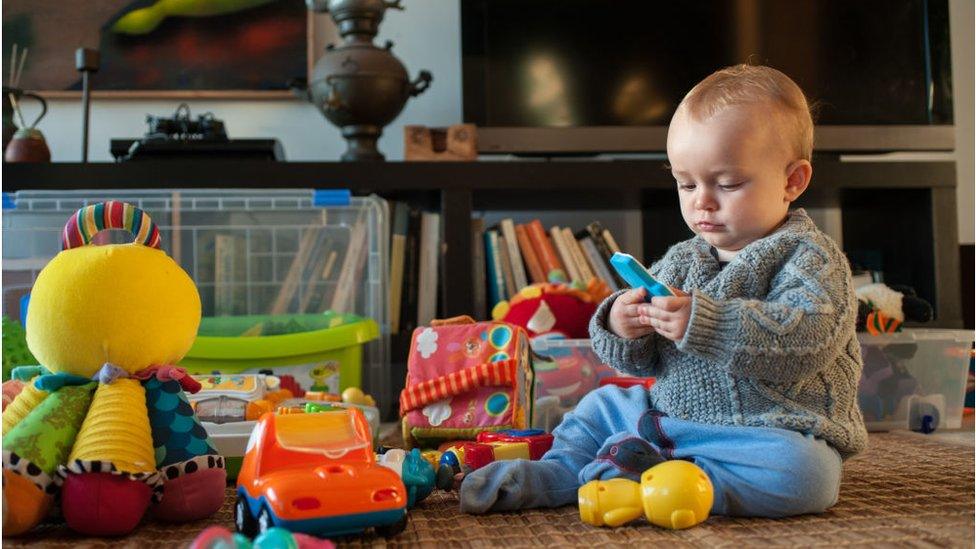Study finds 'baby-talk' aids language development in infants
- Published

The study assessed infants at nine, 15 and 21 months old
The more "baby-talk" words that infants hear, the quicker they grasp language, new research suggests.
Studies of nine-month-olds found that those most exposed to small words ending in "y" sounds - such as mummy, developed larger vocabularies.
The same was also true of babies that heard words with repeat sounds - such as choo-choo and night-night.
Linguists at Edinburgh University made the discovery after assessing the infants at nine, 15 and 21 months.
'Early stage'
They used recorded samples of speech addressed to 47 infants and checked it for baby-talk words and onomatopoeic sounds, such as woof and splash.
The team found that infants who heard a higher proportion of diminutive words and repeated words developed their language more quickly between nine and 21 months.
Lead researcher Mitsuhiko Ota, from the university's Language Sciences department, said: "Our findings suggest that diminutives and reduplication, which are frequently found in baby talk words - across many different languages - can facilitate the early stage of vocabulary development."
The study, funded by the Economic and Social Research Council, is published in the journal Cognitive Science.